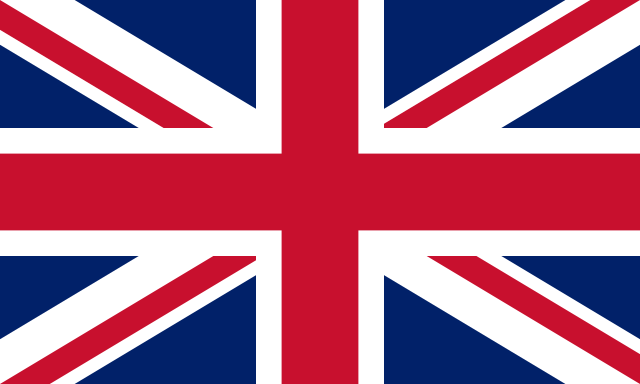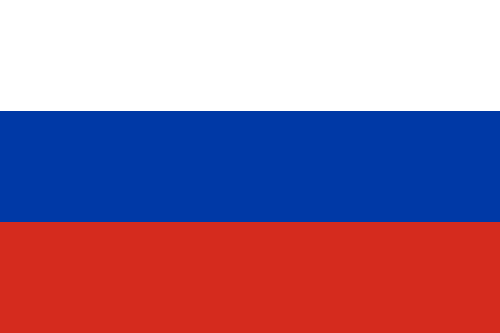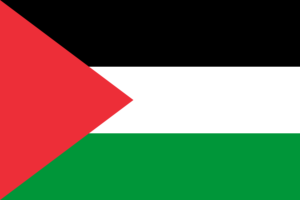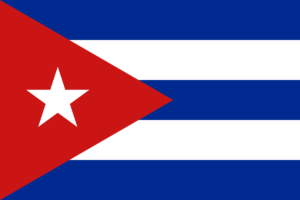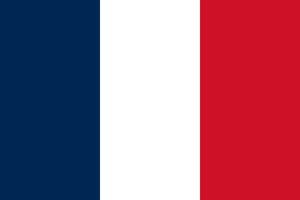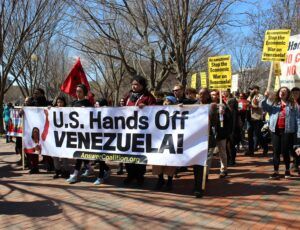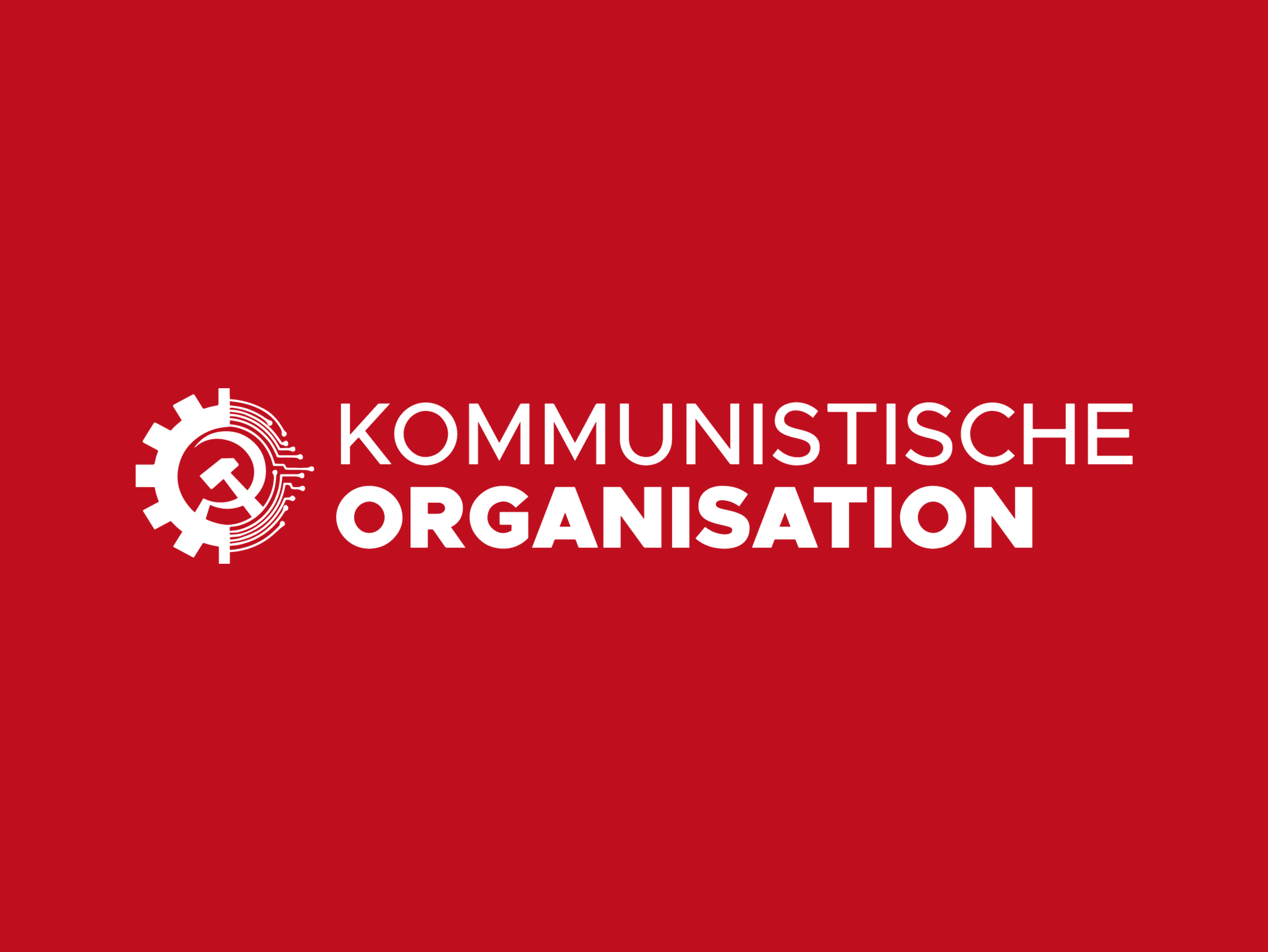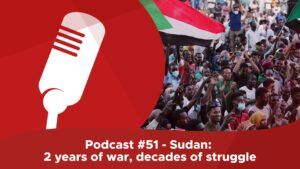Why Iran is waging an anti-colonial struggle…
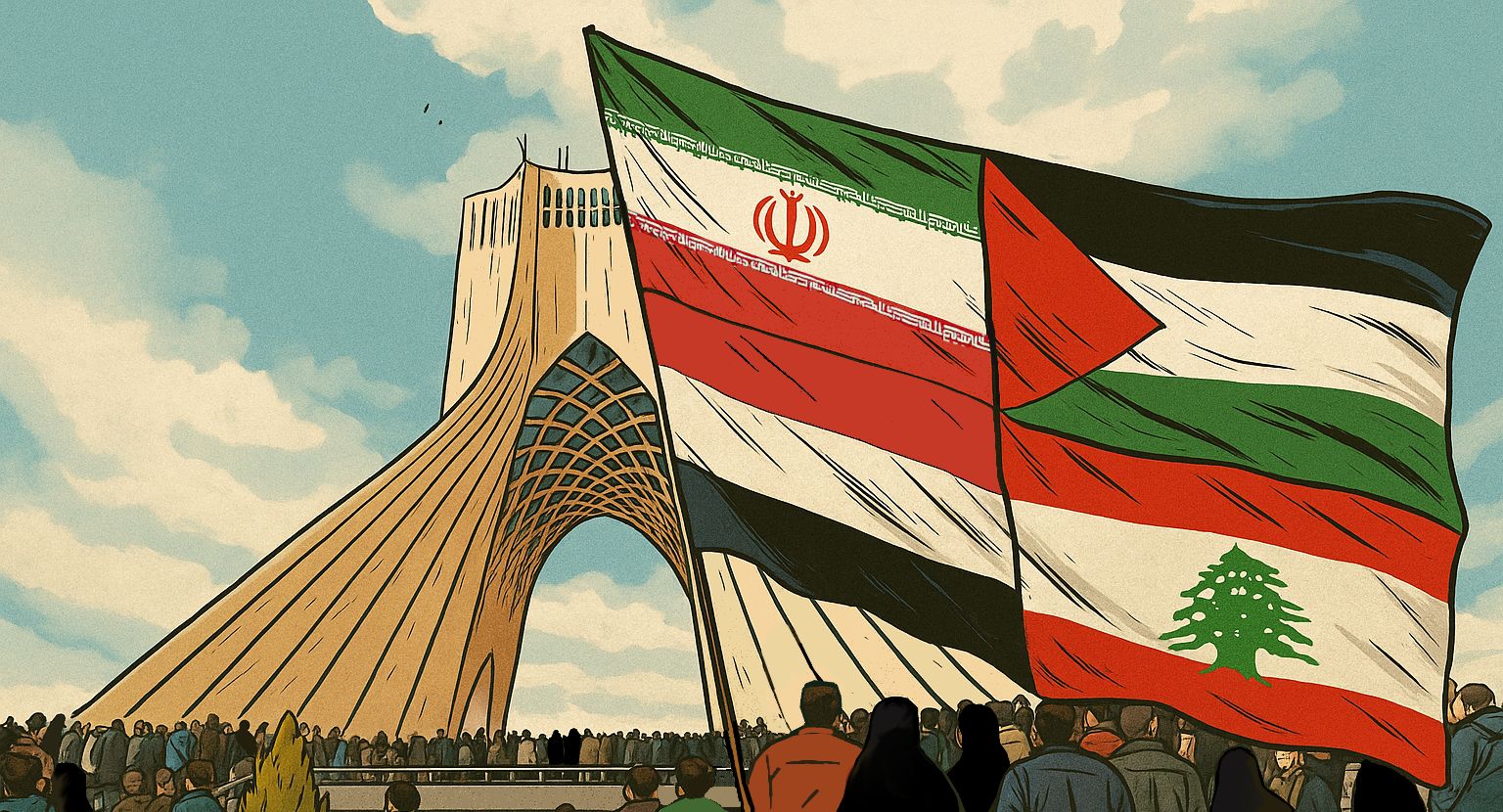
…why Tehran has won a victory, and why we must side with the Islamic Republic!
By Noel Bamen
It is obvious and widely recognized—even in German bourgeois circles—that the recent US-Israeli aggression against Iran was a war of aggression in violation of international law. Unfortunately, however, not only some sections of the political left, the peace movement, and the Palestinian movement fall short of this insight when they speak of a war “between” Israel and Iran or a “spiral of violence.” Rather, virtually all German and Iranian exile leftists, as well as the majority of the Palestine solidarity movement, shy away from openly siding with Iran in its struggle against imperialist aggression.
It is obvious and widely recognized—even in German bourgeois circles—that the recent US-Israeli aggression against Iran was a war of aggression in violation of international law. Unfortunately, however, not only some sections of the political left, the peace movement, and the Palestinian movement fall short of this insight when they speak of a war “between” Israel and Iran or a “spiral of violence.” Rather, virtually all German and Iranian exile leftists, as well as the majority of the Palestine solidarity movement, shy away from openly siding with Iran in its struggle against imperialist aggression.
There are various reasons for this, not all of which can be addressed here: from the rejection of Iranian “authoritarianism”/‘fascism’/“Islamism”/etc., to the accusation that national minorities such as the Kurds are oppressed in Iran, to the principle that one should never side with any bourgeois state. Here, we will examine a other and only one—albeit central—aspect and argue that Iran, in the form of the Islamic Republic, has successfully defended itself against a colonial war that aimed to destroy Iran as a nation and, above all, to eliminate it as an anti-imperialist force – and that we as leftists and communists, as anti-imperialists and supporters of Palestine, must clearly side with it, especially since the danger of a renewed and more comprehensive war is by no means averted.
Iranian imperialism?
Various parties frequently accuse Iran itself of being an “imperialist power” or of pursuing “imperialist policies.” In most cases, they refer to Syria or, more generally, to Iran’s support for “militias and proxy groups in large parts of the Middle East” (meaning Lebanon, Yemen, and Iraq). This aspect will not be discussed in detail here, but a few points must be made in this regard.
It is true that Iran’s role in Syria cannot be fully assessed without discussing Syria itself, which is beyond the scope of this article. However, even if one assumes that Tehran defended the Baath regime against a legitimate “popular revolution” and that this was not a regime change fueled by the imperialist West and its allies in the Middle East, one could speak of “foreign interference” with regard to Iran—but that is far from proof of “Iranian imperialism.” The claims made primarily by the West, that the Lebanese Hezbollah or the Yemeni Ansarollah are puppets of Iran are not even accepted by serious (bourgeois) scholars and even former US diplomats.1 And regarding the Baath in Syria, this accusation was not even a central motif of Western propaganda.
Anyone who would like to prove that Iran is practicing any kind of “imperialism” would first have to present a (comprehensive) analysis of the Iranian economy and demonstrate how the Islamic Republic systematically subordinates other nations economically, politically, and militarily.2 This would unlikely be possible to prove even for its immediate neighbors.
A country on the brink of colonial subjugation
Iran may never have been formally colonized, something the Iranians are rightly proud of. However, it has been exposed to imperialist influences for over a hundred years. Without going into too much detail, it is worth mentioning a few facts: in 1914, Lenin counted the country alongside China and Turkey as semi-colonies and wrote, that Persia was “already almost completely a colony.”3 In 1953, Prime Minister Mossadegh was overthrown by Britain and the US after nationalizing Iranian oil and was replaced by the Shah, who had the support of the West until the 1979 revolution. In 1980, Iraq invaded Iran and embroiled it in a bloody eight-year war. This war divided both the Arab countries and the anti-imperialist states in the region, thus objectively serving the interests of Israel and the Imperialists. The US is said to have not only encouraged Iraq to attack Iran (just as it did with Kuwait in 1990), but also helped to prolong the war by supplying weapons to both sides. In 1988, they shot down an Iranian civilian passenger plane en route to the United Arab Emirates, killing all 290 people on board. As early as 1979, Washington imposed sanctions on Tehran, which became increasingly aggressive and far-reaching over time. Between 2012 and 2023 alone, Iran is said to have suffered damages amounting to $1.2 trillion.4 In addition, there have been massive impacts on the health care system, which have claimed countless lives.5
In 1987, Israel first spread rumors that Iran, a signatory to the Nuclear Non-Proliferation Treaty since 1968 – unlike Israel – was seeking to develop a nuclear bomb. In 1992, the US claimed that Iran would have developed such a weapon by the year 2000. In 2003 and 2004, Iran bowed to pressure from the West, namely the IAEA, and massively restricted its civilian nuclear program and expanded its cooperation with the IAEA. However, Washington did not consider these concessions sufficient. As Henner Fürtig writes, the fact that at the same time “a comprehensive nuclear agreement between the US and India was made public” already suggested to Tehran at that time “that the US administration was fundamentally denying Iran the use of nuclear energy”;6 an imperialist presumption with regard to the country’s energy sovereignty. Against this backdrop, Iran announced that it would abandon uranium enrichment. The result was massive sanctions packages by the UN Security Council (which, incidentally, were supported by China and Russia at the time). “In March 2008, President Bush went one decisive step further,” Michael Lüders‘ book explains. “He signed a decree that launched an ‘unprecedented covert offensive’ against Iran, in close cooperation with Saudi Arabia.” This offensive extended “to the assassination of government politicians,” attacks on employees of the nuclear program, and the development of the ‘Stuxnet’ computer virus in 2009/10, which was intended to disable the centrifuges at the uranium enrichment plant in Natanz and succeeded temporarily.”7
As early as 2007, Iranian nuclear physicist Ardeshir Hosseinpour was believed to have been assassinated by Mossad. Between 2010 and 2020, five other Iranian scientists working on the Iranian nuclear program were killed in assassinations. Another, Fereydoon Abbasi, survived a bombing in 2010. He was however killed, along with nine of his colleagues, in Israeli bombing raids in mid-June this year. In total, at least 17 Iranian scientists, some of them along with their entire families, are reported to have been murdered during the June war.8 For years, there have also been suspicions that the IAEA passed on confidential data to Israel, which Tel Aviv used to carry out the targeted killings.9 In January 2020, the US also carried out an attack on Iranian General Qasim Soleimani, when he landed in Iraq on a civilian diplomatic mission. In addition to Soleimani, other Iranian envoys, several Iraqi military personnel, and at least one civilian were murdered. In April 2024, Israel bombed the Iranian embassy in Syria, and and in July, the Zionists assassinated Ismail Haniyeh in Tehran.
This is compounded by years of support from the West and its allies for opposition, separatist, or simply criminal civilian and armed actors both inside and outside Iran. To quote Lüders again: “From Lebanon to Afghanistan (…) Tehran’s opponents received weapons and money. A cornerstone of this strategy was to destabilize the Syrian regime.“10 Through the Iran Democracy Fund, initiated in 2006 under George W. Bush, and its successor, the Near East Regional Democracy Fund, established by Obama in 2009, hundreds of millions of US dollars have flowed into the direct subversion of the Iranian state over the past two decades.11 (The Zionist US think tank Washington Institute for Near East Policy boasted, among other things, that the “Woman, Life, Freedom” protests in 2022 would not have been possible without US assistance.12)
A colonial war—and an Iranian victory
This brief overview shows that the image of “a war between two highly armed imperialist countries” (Marxist-Leninist Party of Germany, MLPD)13 or “an inter-imperialist conflict between two reactionary regimes” (Communist Party, “KP”)14 is fundamentally wrong. It is not even a “normal” war between two roughly equal states. Although Iran is not a colony, it is a formally independent country. During and after the 1979 revolution, it slowly worked its way out of its role as a semi-colony in a tedious and contradictory process. However, it is subject to constant attacks by imperialism, is structurally dependent—not least on the US dollar—and is constantly threatened with being thrown back into a semi-colonial status by internal counterrevolutionary forces. The Iranian people naturally have great advantages over the Palestinians due to the existence of their state -weakened as it may be – the Iranians are a decisive step further in the struggle for national sovereignty, as are most of the colonized peoples of the world who have managed to fight for their (formal) statehood. However, this does not mean that imperialist domination and colonialist interference have come to a close.
This is particularly evident in Iran: how often have the US and Israel been able to bomb Iran with impunity and assassinate politicians and civilians? This state terrorism is ultimately an expression of a colonial relationship in which one country is the “hunting ground” of the other. Admittedly, Iran has finally been striking back since last year, as demonstrated by Operations “True Promise“ and “True Promise 2“. But the fact that “True Promise 3” being called off in response to the assassination of Hasan Nasrallah and having only now been carried out in retaliation to the start of Israel’s war of aggression, proves once again Iran’s weakness.
Even the casualty figures clearly show that this is an unequal war: ten times more Iranians have been killed than Israelis—a typical ratio for a colonial war. Meanwhile, the Zionists have killed numerous high-ranking Iranian military leaders, while Iran has so far been unable to take out any Israeli leaders. This is also a reflection of past anti-colonial wars of liberation: neither the Algerians nor the Vietnamese were ever able to kill French or US leaders. The missiles fired at Tel Aviv and other military targets in Israel—as well as the US base in Qatar—represent significant progress and are extremely important. However, it is completely unthinkable that Iran would directly attack the US, the real power behind Israel, the “mother country“ so to speak.
Nevertheless, we also know: The oppressed peoples do not have to conquer or eliminate the imperialist centers militarily in order to win. (The only colonial war that ended with the “subhumans” marching into the metropolis, forcing the self-proclaimed “master race” to surrender unconditionally on their own soil, and bringing the criminal leaders to justice was Nazi Germany’s war of extermination to colonize the Soviet Union.) They triumph when they resist subjugation, when they repel or expel the aggressors, when they establish or defend national sovereignty. As Ali Abunimah argues, the Zionists‘ goal was less the destruction of Iran’s nuclear program and missile arsenal than the overthrow of the Islamic Republic. While it is at least highly questionable whether the first two goals were actually achieved, regime change has definitely failed. This was probably due in no small part to Netanyahu’s failure to draw the Trump administration into the war—the former wanted a colonial war of subjugation, the latter merely a colonial “punitive expedition.” And instead of an uprising by the pro-Western, liberal opposition in Iran, these sections of society were apparently driven to side with the Iranian government in the face of aggression.15
Gaza is being defended in Tehran!
Various voices were quick to warn that the war against Iran was distracting attention from the situation in Gaza. There is some truth in this, insofar as Israel’s attack on Iran was indeed a desperate move designed, among other things, to divert attention from the genocide in Gaza, which has now also prompted protests from Western governments. But this “warning” was particularly perfidious coming from the “left-wing” Iranian exile community and was primarily intended to undermine solidarity with Iran. This is because the real goal was the destruction of the Islamic Republic, which, alongside Yemen, is the only state power in the world that can be considered a true ally of the Palestinian resistance.
All the others, from Morocco and Egypt to Jordan and the oil monarchies of the Arabian Peninsula, are traitors – if, after decades of collusion with Zionism, one can still speak of “treason” and not simply of enmity. The new regime in Syria has also quickly demonstrated whose side it is on, ultimately confirming the warnings of all those who cautioned against the “Syrian revolution”: The regime has so far accepted the extensive Israeli occupation of Syrian territories, and there are rumors that it will even be accepted permanently.16 Iran and Hezbollah are the declared main enemies of the “new Syria,” and the Palestinian factions are being gradually disarmed by the regime, if not outright crushed, as in the case of the PFLP-GC and Fatah al-Intifada, two organizations with strong ties to the Syrian Baath Party, with their leaders being arrested, as in the case of the Iranian-affiliated Palestinian Islamic Jihad.17 Turkey has officially suspended trade with Israel – 75 years after the Nakba and seven months and several billion US dollars in trade volume after the start of the genocide,18 but since then, Turkish exports worth hundreds of millions, if not billions, of dollars have reached Israel, circumventing the embargo by simply stating “Palestine” as their destination.19 Through Azerbaijan, which openly collaborates with the Zionist regime against Iran, there is a second important de facto geopolitical alliance between Turkey and Israel, alongside NATO.20 Even South Africa, which rightly enjoys great international sympathy for its lawsuit against Israel’s genocide, remains one of the most important coal suppliers to the Zionist regime, even increasing this export, which is vital to the Israeli energy sector, and selling ammunition and diamonds to Tel Aviv.21
Iran, on the other hand, not only boycotts Israel completely, but is also the guardian of the Palestinian resistance, as the Soviet Union once was: while the Palestinians contribute their morale, perseverance, and lives to the struggle, Tehran has been providing the funding, the military equipment, and its military and technical expertise, and has been doing so for decades.22 Tehran not only finances, arms, and trains the Palestinians, but also Hezbollah and the Yemenis. Apart from Iran, Yemen, and Hezbollah, no one else had fought alongside the Palestinian resistance in recent decades (apart from a few Shiite organizations in Iraq and Bahrain, also supported by Iran, and a few small Sunni groups in Lebanon). Between October 7, 2023, and November 2024, 4,000 Hezbollah members gave their lives.23 That is almost half of the fighters who died in the Gaza Strip during the same period.24 Nearly 900,000 Lebanese have already been displaced.25 In Yemen, more than 200 civilians were killed by the US alone between March and May 2025.26 And in Iran, 1060 people were killed and thousands injured by Israel within a week.27
We often hear the argument that Iran supports the Palestinians not out of “charity” but out of self-interest. I have previously argued against this elsewhere:28 On the one hand, this claim is simply not true, because there is indeed a deep-seated solidarity with the Palestinians and their struggle that remains alive in Iran to this day – it is just as much an expression of sincere “tenderness of the peoples” (Che Guevara) as is the solidarity among the Arab, Muslim, and non-Arab and non-Muslim masses that we have been observing worldwide since October 2023. And second, this juxtaposition of interests and genuine solidarity is false: The Islamic Republic supports the Palestinians (and other resistance forces in the region) out of self-interest, precisely because it is objectively opposed to Zionism and Western imperialism and also subjectively committed to this opposition. Its struggle is closely linked to that of the Palestinians and the peoples of the region striving for liberation from imperialism. The Islamic Republic is a natural ally of the Palestinians and vice versa. This distinguishes it from the Western-dependent regimes in Morocco, Egypt, Jordan, Saudi Arabia, Bahrain, the Emirates, and Syria, from Qatar, home to the largest US military base in the region, and from NATO member Turkey.
Historical comparisons are always flawed, but it can nevertheless be said that Iran plays a doubly central role for the Palestinians today: it has succeeded the Soviet Union as a guardian. At the same time, it has become a kind of “frontline state” after Egypt lost to Israel in 1967 and changed sides in 1978, after the PLO was expelled from Jordan in 1972 and from Lebanon in 1980, after Syria fell in 2024, and now with Mahmoud Abbas currently setting out to disarm Palestinian fighters in Lebanon. Unlike the frontline states in North and South Africa, from which the Algerian, South African, Namibian, and Zimbabwean liberation movements were able to operate, and unlike North Vietnam, Iran is not directly on the front line. Therefore, Palestinian freedom fighters cannot operate from its territory. However, it plays a similar role to the states mentioned above: it uses its own national sovereignty to support the Palestinian liberation struggle – and in doing so risks becoming a war zone and a victim of aggression itself. This is precisely what has happened recently: Iran, like North Vietnam, Namibia, Angola, Mozambique, and Lebanon before it, has become the target of imperialist aggression because it supports a national liberation struggle. And just like these countries, its national sovereignty is fragile, and in the imperialist and, it should be noted, racist order it stands barely above the colonized people it so ardently supports.
Conclusion: Solidarity with the Islamic Republic of Iran!
In the midst of US-Zionist aggression, various German organizations once again demonstrated their radical leftism and their lack of a revolutionary realpolitik: The MLPD issued the slogan “Down with the regime of the Islamic Republic!”29 and a publication of the Kommunistischer Aufbau declared that it was the urgent task of the Iranians, just like that of the Israeli working class, to “bring their own reactionary regime to its knees” – whereby, with regard to Israel, it seems to refer not to the Zionist regime itself, but merely to the “right-wing government,” while in Iran it refers to the entire “mullah regime.”;30 and the group See Red! writes about the “reactionary Netanyahu regime” and the “reactionary mullah regime,” only to then proclaim, in a manner as general as it is unhelpful, that “the rulers must be overthrown & capitalism overcome.”31 The “KP” contorts itself around such obviously equidistant platitudes in the face of Zionist aggression – but its formulation, “solidarity with the Iranian people,”32 ultimately amounts to the same attitude as that of the other organizations mentioned.
The Islamic Republic of Iran is a bourgeois state and the ruling class is capitalist, with a large part of it tending to sacrifice the national interests of their country in order to switch to the Western camp. This structurally weakens the state in its function of defending national sovereignty. At the same time, however, with its army, its militias, and its relatively self-sufficient economy, the state is the most important weapon for protecting the nation and the masses – which is why it must be defended! In addition, this state has for decades been pursuing a policy directed against the imperialist West, both subjectively and objectively, and important sections of the masses as well as the ruling class are prepared to make sacrifices for that cause. That is why the imperialists want to overthrow the IRI – and that is why we must support it!
It goes without saying that a socialist economy would be important for the working classes of Iran, whose social and economic rights are in a catastrophically poor state. It would also serve as a guarantee of economic and military defense against imperialist interference. However, replacing the existing Iranian state with a socialist one is nothing more than radical left-wing fantasy given the current balance of power in the country. As things stand, calling for an overthrow does not mean abolishing the Islamic Republic in favor of a more progressive form of state and society, but merely plays into the hands of Israel and the US.
- Said AlDailami: Jemen. Der vergessene Krieg, München (C.H. Beck) 2019, pp. 119-23. Michael Lüders: Armageddon im Orient. Wie die Saudi-Connection den Iran ins Visier nimmt, München (C.H. Beck) 2018, pp. 87, 173-78. Imad Mustafa: Der Politische Islam. Zwischen Muslimbrüdern, Hamas und Hizbollah, Wien (Promedia) 2013, pp. 112. Manuel Samir Sakmani: Der Weg der Hizbullah. Demokratietauglichkeit, Konflikt- und Stabilisierungspotenziale im Libanon Berlin (Klaus Schwarz) 2008, pp. 63-65. ↩︎
- The Marxist-Leninist Party of Germany (MLPD) provides an example of how not to do it:https://www.rf-news.de/2024/kw03/iran-regionalmacht-atomwaffen ↩︎
- https://www.marxists.org/archive/lenin/works/1916/imp-hsc/ch06.htm ↩︎
- https://www.iranintl.com/en/202406244025 ↩︎
- https://www.hrw.org/news/2019/10/29/iran-sanctions-threatening-health, https://www.thelancet.com/journals/lancet/article/PIIS0140-6736(13)61024-7/fulltext ↩︎
- Henner Fürtig: Großmacht Iran. Der Gottesstaat wird Global Player, Köln (Quadriga) 2016, p. 182. ↩︎
- Lüders: Armageddon im Orient, p. 106f. ↩︎
- https://thecradle.co/articles/israels-war-on-irans-scientific-resistance-inside-the-targeted-killings-of-nuclear-minds ↩︎
- Ibid. Also: https://english.almayadeen.net/news/politics/tehran-unravels-documents-revealing-secret-iaea–israel–col ↩︎
- Lüders: Armageddon im Orient, p. 106f. ↩︎
- https://ciaotest.cc.columbia.edu/pbei/winep/0017484/f_0017484_14967.pdf, https://www.washingtoninstitute.org/policy-analysis/after-crackdown-iran-democracy-fund, https://thecradle.co/articles/leaked-documents-expose-us-interference-projects-in-iran. ↩︎
- https://www.washingtoninstitute.org/policy-analysis/why-secretary-rubio-should-provide-grant-waivers-urgent-human-rights-work-iran ↩︎
- https://www.rf-news.de/2025/kw25/mittlerer-osten-uebergang-zu-einem-offenen-krieg-zwischen-zwei-imperialistischen-laendern ↩︎
- https://kommunistischepartei.de/aktuelles/ueber-voelkerrecht-und-voelkerrecht/ ↩︎
- https://electronicintifada.net/blogs/ali-abunimah/iran-won-israel-lost ↩︎
- https://www.jfeed.com/middleeast/israel-syria-secret-talks-1 ↩︎
- https://thecradle.co/articles/how-syrias-hts-is-quietly-dismantling-the-palestinian-cause, https://peoplesdispatch.org/2025/04/23/syrias-interim-government-arrests-senior-palestinian-resistance-leaders/ ↩︎
- https://thered.stream/erdogans-palestine-dilemma-love-trade-and-the-anatomy-of-a-collaborator/ ↩︎
- https://www.middleeasteye.net/news/turkish-exports-reach-israel-goods-palestine-skyrocket ↩︎
- https://thecradle.co/articles/axis-of-encirclement-azerbaijan-israel-and-turkiye-close-in-on-iran ↩︎
- https://www.theleftberlin.com/bds-south-africa-syria-palestine-coal/ ↩︎
- https://kommunistische-organisation.de/englisch/fifteen-common-myths-about-hamas-and-why-we-must-fight-against-its-ban/#heading-19 ↩︎
- https://www.reuters.com/world/middle-east/hezbollah-faces-long-recovery-officials-fear-thousands-fighters-lost-israel-2024-11-27/ ↩︎
- https://acleddata.com/2024/10/06/after-a-year-of-war-hamas-is-militarily-weakened-but-far-from-eliminated/ ↩︎
- https://www.iom.int/crisis-lebanon ↩︎
- https://trump-yemen.airwars.org/operation-rough-rider ↩︎
- https://www.arabnews.com/node/2607319/middle-east ↩︎
- https://kommunistische-organisation.de/englisch/fifteen-common-myths-about-hamas-and-why-we-must-fight-against-its-ban/#heading-19 ↩︎
- https://www.rf-news.de/2025/kw25/nein-zu-diesem-reaktionaeren-krieg-nieder-mit-dem-regime-der-islamischen-republik ↩︎
- https://perspektive-online.net/2025/06/weder-tel-aviv-noch-teheran/ ↩︎
- https://www.facebook.com/photo.php?fbid=1111074937713198&set=pb.100064321074344.-2207520000&type=3 ↩︎
- https://kommunistischepartei.de/stellungnahmen/nieder-mit-der-aggression-israels-solidaritaet-mit-dem-iranischen-volk/ ↩︎
